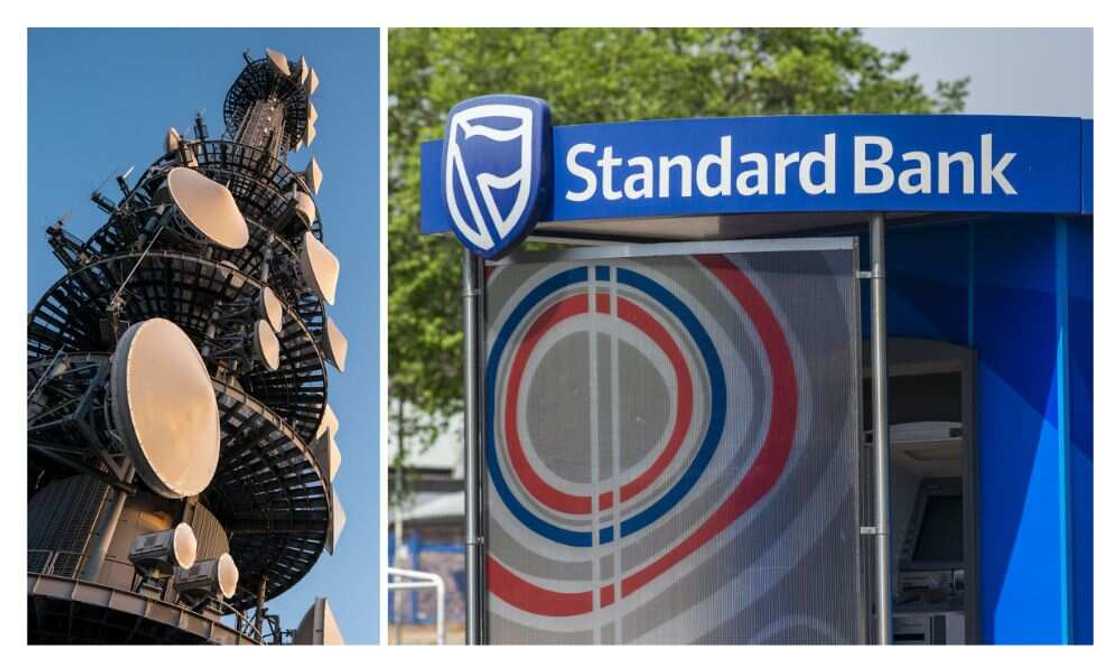African Countries Are the Biggest Investors in Nigerian Banks, MTN, Airtel, Others. See List
- Many African countries are significant investors in Nigeria’s banking, telecommunication, and other sectors
- South Africa is touted as the most prominent African investor in Nigeria, spanning telecoms, banking, and others
- Nigeria has witnessed decreased Foreign Direct Investment in recent years
PAY ATTENTION: Click “See First” under the “Following” tab to see Legit.ng News on your Facebook News Feed!
A recent report has said that African countries have invested about N1.995 trillion in Nigerian companies in the past three years.
The investment represents about 19.52% of the $21.69 billion invested in Nigeria from various countries in the period, data from the National Bureau of Statistics said.

Source: Getty Images
South Africa emerges biggest investor country in Nigeria
The report showed that South Africa is the largest African investor in Nigeria, with many businesses across the country.
PAY ATTENTION: Share your outstanding story with our editors! Please reach us through info@corp.legit.ng!

Read also
Zenith leads, Access Bank follows: 10 banks generate over N125bn in revenue from account maintenance charges
South African businesses in Nigeria span the telecoms, engineering, banking, retail, and more.
MTN Nigeria, owned by the MTN Group, is one of South Africa’s most successful business imports into Nigeria. Stanbic Bank is another known investment from South Africa.
Others include Shoprite, PEP stores, and Multichoice, owners of DSTV and GOTV, all South African brands.
Mauritius, the second biggest African investor in Nigeria, invested about N583.66 billion in Nigeria.
Punch reports that Sustainable Capital Limited, based in Moka, Mauritius, is raising its equity in Seplat Energy to 8.3% from 7.7% in 2022.
Mauritius bank to open shop in Nigeria
Mauritius Commercial Bank revealed plans to open an office in Nigeria. Per a post on the Nigerian Investment Promotion Commission, MCB of Corporate and Institutional Banking, Thiery Hebraud, more than 50% of the bank’s balance sheet is outside Mauritius, and the central part is invested in Africa.

Read also
Access Bank, UBA, other Nigerian banks bleed, incur N284 billion losses over Ghanaian Bonds default
A report said the bank has almost $850 million in investment in Nigeria’s oil and gas sector.
Top country investors in Nigeria
- Other countries are:
- Botswana ($1.29m)
- Congo ($148m);
- Cote d’Ivoire ($10m)
- Egypt ($16.14m)
- Guinea ($50m)
- Ghana ($31.78m)
- Kenya ($20.87m)
- Morocco ($43.97m)
- Niger ($2m)
- Sierra Leone ($2m)
- Seychelles ($700,000)
- Somalia ($400,000)
- Sudan ($53.59m)
- Togo ($225.89m)
- Uganda ($120,000)
- Zambia ($1.4m)
NBS said that capital importation data from the Central Bank of Nigeria (CBN) includes physical capital, equipment, and financial importation.
These investments are categorized into foreign direct investment (FDI), portfolio investment, and other investments in the country.
The recently launched African Continental Free Trade Area (ACfTA) is expected to boost intra-Africa investments, with Nigeria being the biggest beneficiary.
Nigeria experiencing declining inflation
Analysis reveals that investments in Nigeria have declined recently due to foreign exchange scarcity, insecurity, and other structural problems.

Read also
Access Bank makes history as first financial company to surpass N1 trillion gross earnings in a year
The analysis said South African investments declined by 59.33% year-on-year from $1.05 billion in 2021 to $208.66 million in 2022.
High inflation in Nigeria is eroding the operations of many foreign firms with declining sales due to reduced purchasing power which has caused the exit of most companies from Nigeria.
The World Bank stated in a recent report that Net FDI inflows are negative, showing withdrawals in equity by foreign investors,
The bank said:
“Net FDI inflows are negative, reflecting net equity withdrawals by foreign investors. FDI and FPI flow into Nigeria do not compare favourably with similar economies of the world, reflecting difficulties with FX availability, security concerns, and other structural challenges in recent years.”
Legit.ng reported that the National Bureau of Statistics (NBS) has revealed that foreign investors brought $5.3 billion into Nigeria in 2022.
The NBS disclosed this in the fourth quarter capital importation report, published on Tuesday, April 4, 2023.
Checks by Legit.ng show that the amount of foreign capital attracted in 2022 is the lowest in six years and a significant drop of $1.4 billion compared to the $6.7 billion capital inflow recorded in 2021.
Source: Legit.ng


